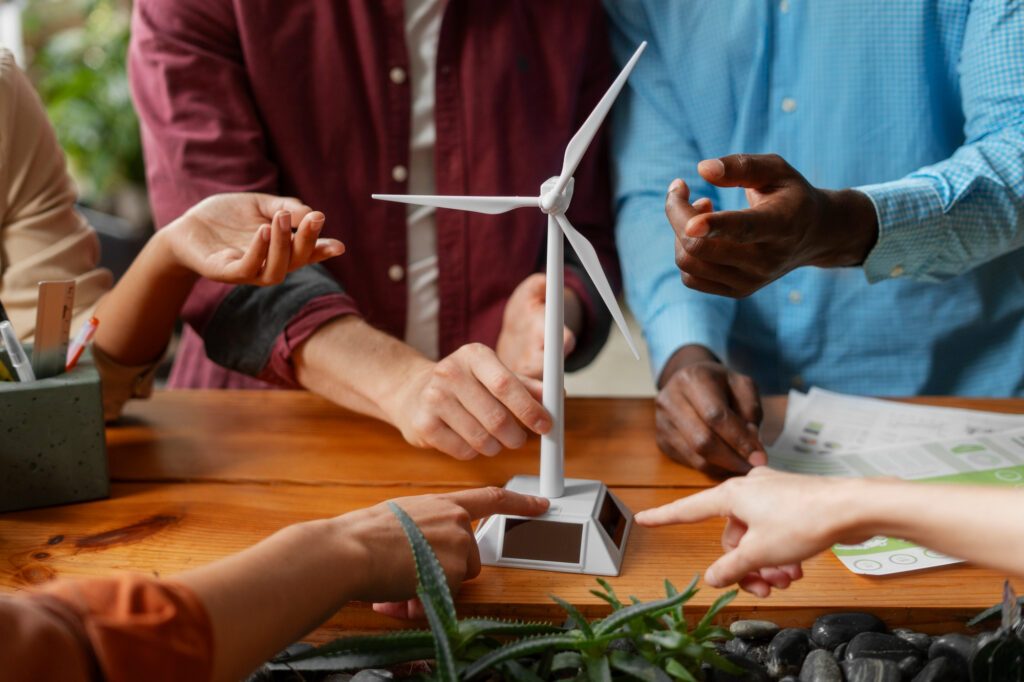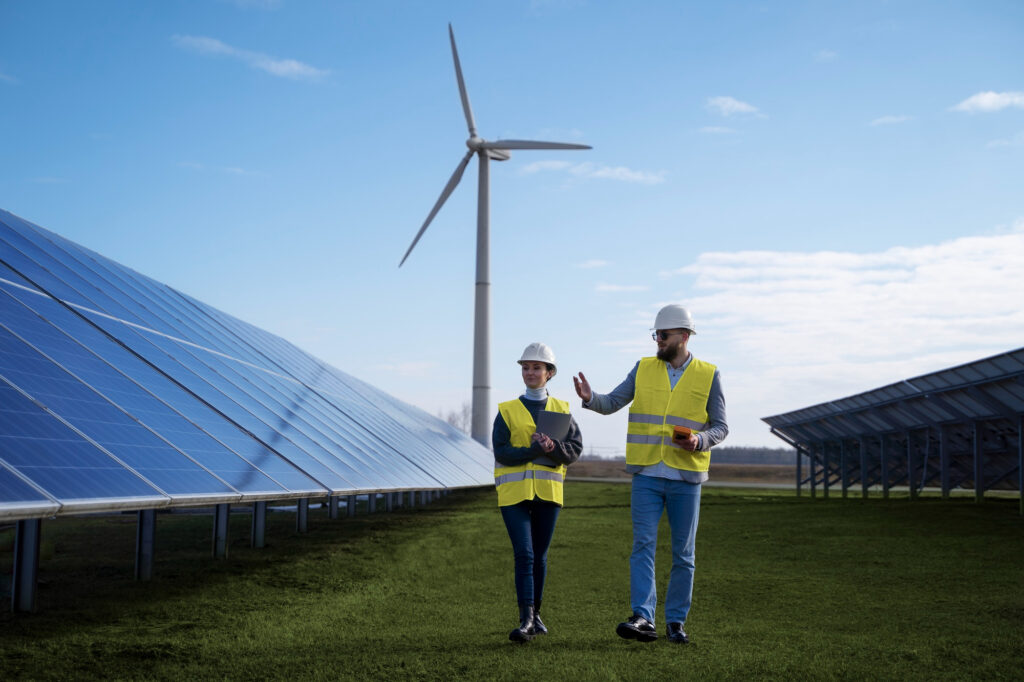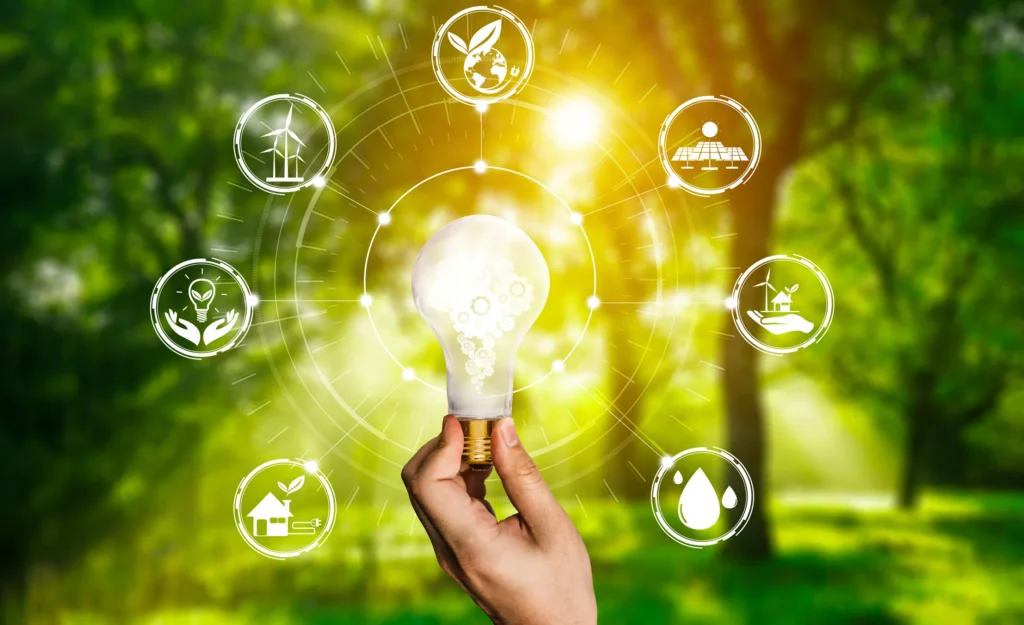
Energy independence is a term that’s becoming more popular as people look for ways to power their homes and lives without relying on traditional energy sources like oil, coal, and gas. But the question many people are asking is: “Is energy independence just for the rich?” In this article, we’ll explore what energy independence means, who it’s for, and whether it’s something everyone can achieve—or if it’s only within reach for those with a lot of money. We’ll keep everything in simple, easy-to-understand language, so everyone can follow along.
What is Energy Independence?
Energy independence means that you generate your own energy, usually through renewable sources like solar panels, wind turbines, or even home batteries, instead of depending on the national grid or fossil fuels. The idea is to reduce your reliance on outside energy sources and, ideally, produce enough energy to meet all your needs.
For example, if you install solar panels on your roof, they can capture sunlight and convert it into electricity. If you generate more electricity than you use, you could even sell the extra back to the grid or store it for later use.
Related Link: What is Energy Independence?
Why Do People Want Energy Independence?
There are several reasons why people are interested in becoming energy independent:
- Save Money: By generating your own energy, you can reduce or even eliminate your electricity bills.
- Environmental Benefits: Renewable energy sources like solar and wind are much better for the environment than fossil fuels, which produce greenhouse gases.
- Energy Security: Having your own energy source means you’re less affected by power outages or rising energy prices.
- Control and Freedom: Energy independence gives you more control over your energy use and costs.
Related Link: Benefits of Energy Independence
Is Energy Independence Just for the Rich?
Now, let’s get to the heart of the matter. Is energy independence something only rich people can afford? The answer isn’t simple—it’s both yes and no. Let’s break it down.
-
Initial Costs
One of the biggest barriers to energy independence is the initial cost. Installing solar panels, wind turbines, or a home battery can be expensive. For example:
- Solar Panels: Depending on the size of your home, installing solar panels can cost anywhere from £5,000 to £15,000.
- Home Batteries: Adding a battery to store your solar energy can add another £4,000 to £7,000.
- Wind Turbines: Small wind turbines for home use can cost £10,000 or more.

These costs can be a significant investment, which might make it seem like energy independence is only for those who can afford it upfront.
Related Link: Cost of Installing Solar Panels in the UK
-
Long-Term Savings
While the initial costs are high, energy independence can save you money in the long run. Once you’ve paid off the cost of your solar panels or wind turbine, the energy you generate is essentially free. Over time, these savings can add up and may even exceed the initial cost.
For example, if your solar panels reduce your energy bill by £600 a year, and they cost £6,000 to install, they could pay for themselves in about 10 years. After that, the savings are yours to keep.
Related Link: How Much Can You Save with Solar Panels?
-
Government Incentives
In some countries, governments offer incentives to help make energy independence more affordable. These can include:
- Grants or Rebates: Money given to help pay for the cost of installation.
- Tax Credits: Reductions in the amount of tax you owe, based on the cost of your energy system.
- Feed-In Tariffs: Payments for any excess energy you generate and feed back into the grid.
These incentives can significantly reduce the cost of becoming energy independent, making it more accessible for people who aren’t rich.
Related Link: UK Government Solar Panel Grants
Who is Energy Independence Really For?
Energy independence is not just for the rich—it’s for anyone who wants to take control of their energy use and costs. However, the journey to energy independence can look different depending on your financial situation.

-
For Those with More Money
If you have the financial resources, you can invest in a complete energy independence setup from the start. This might include solar panels, a home battery, and other renewable energy systems. The upfront cost can be high, but the long-term savings and environmental benefits make it worthwhile.
-
For Those with Limited Budgets
If you don’t have a lot of money to spend upfront, there are still ways to work towards energy independence:
- Start Small: You don’t have to go all-in at once. Start with a smaller system, like a few solar panels, and add more as you can afford them.
- Use Government Programs: Take advantage of any grants, rebates, or incentives available to help reduce the cost.
- Energy Efficiency: Focus on making your home more energy-efficient first. Simple things like better insulation, energy-saving appliances, and LED lighting can reduce your energy needs and make it easier to become independent.
Related Link: How to Make Your Home More Energy Efficient
Challenges to Energy Independence
Even though energy independence is possible for more than just the rich, it’s not without its challenges. Here are a few things to consider:
-
Upfront Costs
As mentioned earlier, the initial cost of setting up an energy-independent home can be a significant barrier. Even with government incentives, the expense can be too high for some people.
-
Maintenance and Upkeep
Once you have your system installed, you’ll need to maintain it. Solar panels need to be kept clean, and batteries or other systems may need occasional repairs. While these costs are usually lower than the initial installation, they’re still something to consider.
-
Space and Location
Not every home is suitable for solar panels or wind turbines. If you live in an area with a lot of shade or little wind, generating your own energy might be more difficult. Additionally, not all homes have the roof space needed for a solar panel system that can cover all your energy needs.
Related Link: Pros and Cons of Solar Energy
The Future of Energy Independence
As technology advances and more people become interested in renewable energy, the cost of energy independence is likely to decrease. Here are some future trends to watch:

-
Falling Costs
The cost of solar panels and batteries has been steadily decreasing, making them more affordable for more people. As technology improves, this trend is expected to continue.
-
Community Energy Projects
In some areas, communities are coming together to create shared energy systems. These projects allow multiple households to benefit from renewable energy without each one needing to install their own system.
-
New Technologies
New technologies, like more efficient solar panels, smaller and cheaper batteries, and other renewable energy innovations, could make energy independence more accessible to everyone.
Related Link: The Future of Solar Energy
Conclusion: Can Everyone Achieve Energy Independence?
So, is energy independence just for the rich? The answer is: it doesn’t have to be. While the upfront costs can be a barrier, especially for those with limited budgets, there are ways to make energy independence more accessible. By starting small, taking advantage of government incentives, and focusing on energy efficiency, more people can work towards reducing their reliance on traditional energy sources.
Energy independence is about more than just saving money—it’s about having control over your energy, protecting the environment, and being prepared for the future. Whether you’re rich or not, these are goals that anyone can aspire to.
Related Articles:
- How to Afford Solar Panels on a Budget
- Energy Efficiency Tips for Renters
- Understanding Renewable Energy Options
By following the steps outlined in this guide, you can begin your journey towards energy independence, no matter your financial situation. With the right approach, energy independence is within reach for everyone.
FAQ: Understanding Energy Independence and Its Accessibility
- What is energy independence, and why is it important?
Energy independence refers to the ability of a nation or individual to meet its energy needs without relying on external sources. This is achieved through domestic energy production, such as renewable energy, fossil fuels, or nuclear power. Energy independence is crucial because it enhances national security, reduces vulnerability to global energy market fluctuations, and promotes economic stability. For individuals, it offers control over energy costs and contributes to environmental sustainability.
- Is energy independence only achievable for wealthy individuals or countries?
While energy independence often requires significant initial investments, it is not exclusively for the wealthy. Advances in renewable energy technologies, government incentives, and community energy programs have made it more accessible. For example, solar panels, once prohibitively expensive, are now more affordable due to technological advancements and mass production. Additionally, energy-efficient appliances and home retrofits can reduce energy consumption, making energy independence achievable for a broader population.
- How does energy independence impact the environment?
Energy independence, particularly through the use of renewable energy sources like solar, wind, and hydropower, can significantly reduce greenhouse gas emissions and other pollutants associated with fossil fuels. By relying on clean energy, individuals and nations can lower their carbon footprint, contributing to the fight against climate change. However, it’s essential to consider the environmental impact of energy production methods, as some renewable technologies still have environmental costs, such as land use and resource extraction.
- What role do government policies play in promoting energy independence?
Government policies are pivotal in fostering energy independence. These can include subsidies for renewable energy technologies, tax incentives for energy-efficient upgrades, and regulations that encourage the development of domestic energy sources. Policies that support research and development in energy storage, grid modernization, and clean energy technologies also contribute to making energy independence more attainable and sustainable. Moreover, international trade policies can affect the availability and cost of energy resources, influencing a nation’s energy independence.
- Can low-income households achieve energy independence?
Yes, low-income households can work towards energy independence, particularly with the help of government programs and community initiatives. Programs that offer low-interest loans, grants, and rebates for energy-efficient upgrades or renewable energy installations make it possible for these households to reduce their energy costs and reliance on external sources. Additionally, community solar projects and energy cooperatives allow individuals to invest in shared renewable energy systems, providing an affordable path to energy independence.
- What are the challenges to achieving energy independence?
Achieving energy independence comes with several challenges, including the high initial costs of renewable energy systems, the need for technological advancements in energy storage, and the transition from fossil fuel-based infrastructures. Additionally, political and economic factors, such as fluctuating energy prices and trade dependencies, can complicate efforts. The intermittent nature of some renewable energy sources, like solar and wind, also presents challenges that require innovative solutions, such as improved energy storage and grid management.
- How does energy independence affect energy prices?
Energy independence can stabilize and potentially lower energy prices in the long term by reducing dependence on volatile global energy markets. By producing energy domestically, individuals and nations can shield themselves from price spikes due to geopolitical tensions, supply disruptions, or global demand changes. However, the transition to energy independence may involve short-term costs, such as investments in infrastructure and technology, which could impact prices initially.
- What is the role of renewable energy in achieving energy independence?
Renewable energy plays a central role in achieving energy independence, as it allows for the production of energy from domestic, sustainable sources. Solar, wind, geothermal, and hydropower are key renewable resources that can be harnessed to reduce reliance on imported fossil fuels. The integration of renewable energy into the grid, along with advancements in energy storage technologies, is critical to achieving a stable and independent energy system.
- Are there economic benefits to pursuing energy independence?
Yes, pursuing energy independence can yield significant economic benefits. By investing in domestic energy production, nations can create jobs, stimulate innovation, and foster economic growth. For individuals, energy independence can lead to long-term savings on energy bills and protection against future energy price hikes. Additionally, the growth of the renewable energy sector presents new opportunities for businesses and workers, contributing to a more resilient and diversified economy.
- How can individuals contribute to energy independence?
Individuals can contribute to energy independence by adopting energy-efficient practices, investing in renewable energy systems like solar panels, and supporting policies that promote clean energy. Simple actions, such as reducing energy consumption, using energy-efficient appliances, and participating in community energy projects, can collectively make a significant impact. Additionally, advocating for sustainable energy policies and supporting local renewable energy initiatives can help drive broader change towards energy independence.

